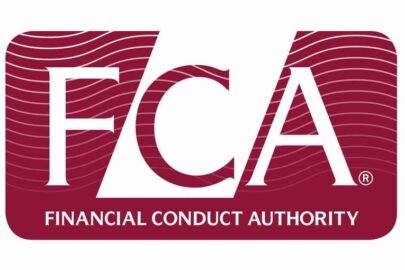The Financial Conduct Authority (FCA) is urging consumers who are struggling to pay their loan repayments due to Covid-19 to contact their lenders.
The regulator has put in place a package of support for people in difficulty to ensure help is available after 31 October.
A survey of more than 7,000 people, conducted by the FCA during the Coronavirus pandemic, found 12 million people in the UK had low financial resilience, meaning they may struggle with bills or loan repayments. The data shows two million of those who are not financially resilient have become so since February.
36% of respondents who already had low financial resilience and had a mortgage said they are likely to fall behind on mortgage payments; 36% of those with loans or credit cards are worried about repayments on these; and 42% of renters are worried about falling behind on rent payments.
31% of adults have seen a decrease in income, with households seeing income fall by a quarter, on average. Those from a Black and Minority Ethnic (BAME) background were more likely to be affected, with 37% of BAME adults taking an income hit.
Whilst survey results show that BAME adults are more likely to have reduced working hours, those aged between 25-34 are the most likely, by far, to have had a change in employment as a result of the pandemic. This will affect the take up of debt advice with 19% of those aged 25-34 saying that they were more likely to seek debt advice in the next six months compared to 2% of those aged 55-64.
Sheldon Mills, interim executive director of strategy and competition at the FCA, said: “We want to remind consumers, especially those who are newly in financial difficulty that lenders are able to provide you with support. There are options available to you which will reflect the uncertainties and challenges that many customers will face in the coming months. It is also important that households in serious financial difficulty seek debt advice for support.
“We understand that many people will continue to live in financial uncertainty as the impact of the coronavirus continues. Our surveys have shown that younger and BAME consumers have been impacted more than others, with a large amount of the population already having seen significant changes to their financial stability since the start of the pandemic.”
The FCA recognises that the increasing coronavirus related restrictions placed on a number of areas of the UK in recent weeks may lead to increased financial difficulty for some people. The guidance is designed to ensure that people can access tailored support which meets their individual needs, including taking account of local restrictions.
Support will be available both to those who have previously taken a payment deferral and those who are newly in financial difficulty, taking into account the specific needs of vulnerable consumers. Firms should work with customers to provide support before they miss payments. The FCA said that, given that people may be impacted in different ways, firms should be flexible and offer a full range of shorter and longer-term options which are tailored to reflect their customers individual circumstances.
This could include:
- suspending, reducing, waiving or cancelling any further interest or charges
- permitting the customer to make no or reduced payments or
- agreeing a repayment plan.
Tailored support is also available to overdraft customers who are struggling financially as a result of coronavirus. Firms should also treat customers fairly – for example by not repossessing someone’s home when they are in lockdown and can’t access alternative accommodation.
For consumers who have previously taken a payment deferral, firms should offer a range of options for how the missed payments will be repaid.
James Fearnley, corporate policy and propositions manager at the Money and Pensions Service, said: “It’s crucial that people who are struggling to make credit and mortgage repayments don’t suffer in silence, particularly those who have been hit hardest by the financial impacts of Covid-19 such as young people and people from BAME backgrounds.
“From November 1, people will no longer be able to apply for support measures such as payment holidays or deferrals so it’s vital that anyone facing difficulties contacts their provider to find out what further help they can offer. It’s important to remember that you don’t have to agree to a repayment arrangement if you can’t afford it – your lender must agree what works best with you. Anyone worried about money in the wake of Covid-19 can use the Money Navigator Tool on the Money Advice Service website to find a way forward with their finances.”
